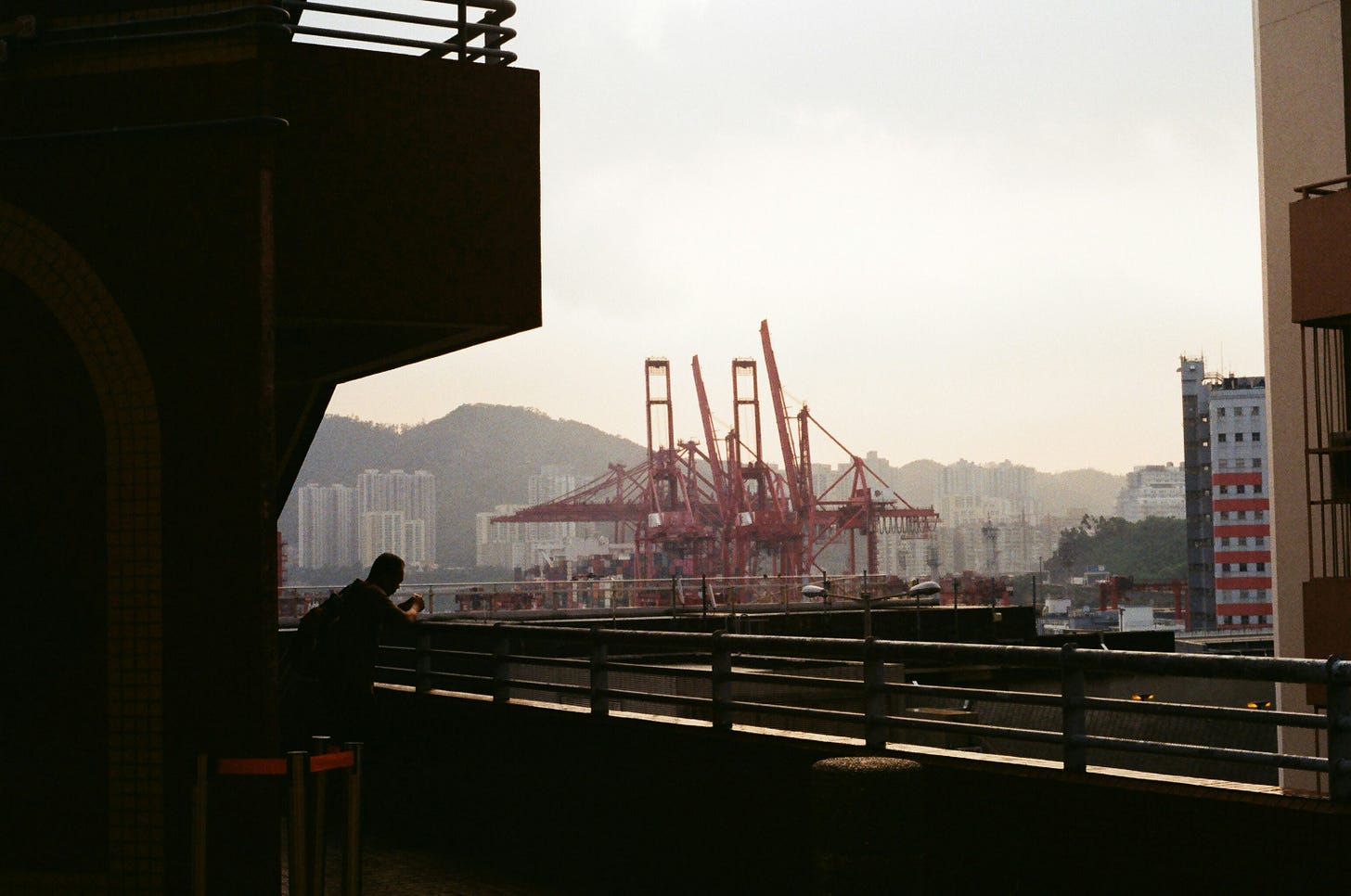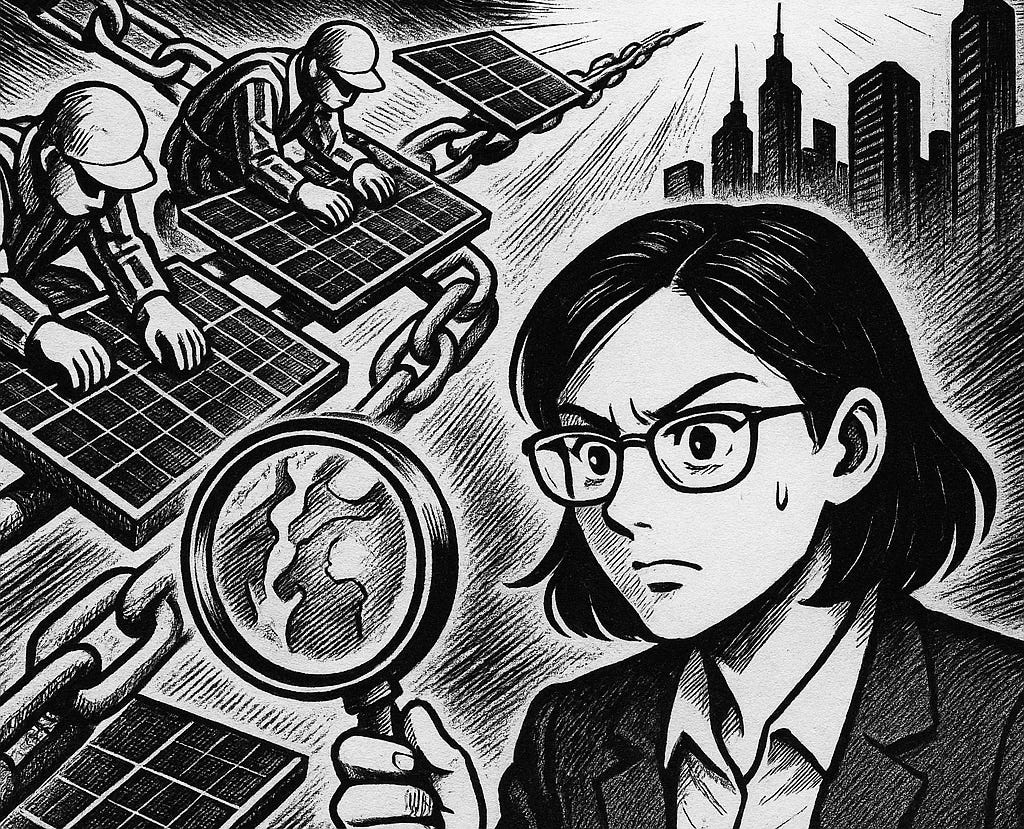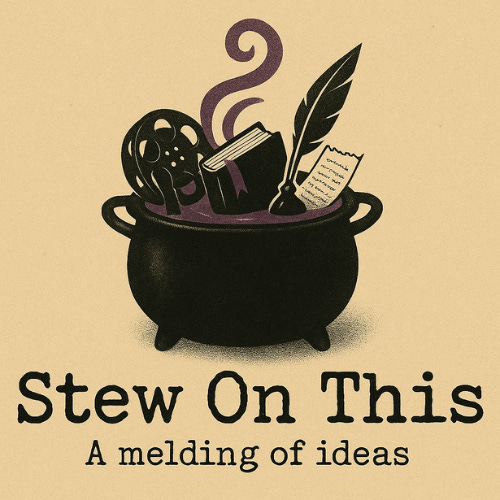
At Sheffield Hallam, a daring researcher took on the dangerous task of studying international supply chains, particularly those that stretch into territories under the control of the Chinese Communist Party (CCP). Professor Laura Murphy uncovered how the Uyghur population, a Muslim minority group concentrated in the Xinjiang Uyghur Autonomous Region (XUAR), has been coerced into forced labor under the guise of so-called “surplus labor” and “poverty alleviation” programs. Her research pulled back the curtain on China’s global integration: a surveillance-police state feeding into the green energy supply chains of liberal democracies.
The message from Beijing was unambiguous. After her initial findings in 2021 connected Uyghur forced labor to polysilicon production in solar panels, with Xinjiang accounting for 45% of global supply, the CCP retaliated. State security officers visited Sheffield Hallam’s office in Beijing and interrogated staff. Also, the university’s digital infrastructure was blocked in China, and the recruitment of Chinese students plummeted. The implied ultimatum? Choose revenue, or choose research.
Sheffield Hallam blinked.
The university suspended Murphy’s research, declined to publish a key report, returned funding to its grantor, and eventually shuttered her unit. Only after Murphy sued under the UK’s Higher Education (Freedom of Speech) Act of 2023 did the university reverse course and issue a hollow apology. But by then, the damage to academic freedom, to Uyghur rights advocacy, to the university’s own integrity was done.
Here’s where this case shifts from an unfortunate incident to a global parable. What unfolded at Sheffield Hallam is symptomatic of a more profound crisis at the heart of the liberal international order. Since the Thatcher-Reagan axis institutionalized neoliberalism in the West, universities have become revenue-driven enterprises. Globalization brought capital, students, and prestige. But it also brought dependency. China’s strategic leverage over education, media, and research is not accidental. It is the logical endpoint of Western institutions turning themselves into market actors.
What we are witnessing is a form of hegemonic jiu-jitsu. China, a party-state that does not recognize academic freedom as a value, now has leverage over the institutions that supposedly defend it. This is not merely about censorship but epistemic sovereignty.
Who gets to define truth?
Who gets to publish it?
And who pays the price when knowledge becomes inconvenient?
There are compelling theoretical tensions here. Liberal institutionalists might argue that interdependence restrains authoritarian overreach, but this case demonstrates the opposite: that asymmetrical dependencies expose liberal states to subtle forms of coercion. Realists might see this as proof that power, not norms, shapes outcomes. Constructivists would remind us that the meanings of “research” and “freedom” are themselves socially contested and subject to strategic reinterpretation.
But critical theorists would likely be the least surprised. They would see this as a natural result of commodified knowledge systems, where dissent is tolerated only until it threatens revenue streams. And where universities operate as borderless brands rather than civic institutions.
So we arrive at the uncomfortable question: does the global order built on neoliberal assumptions defend markets or human rights? Does it protect freedom or merely monetize it?
Murphy’s research showed how global climate solutions are being built on coerced labor. Her courage has now exposed how the institutions that should be protecting her are compromised by their own market entanglements. In the name of sustainability, we outsource both our energy and our ethics. The sun may be free, but solar panels, it seems, are made with shadows.
This is not just about Sheffield Hallam.
It’s about a Western academic system navigating increasingly contested terrain. It’s about the vacuum left by a retreating U.S. and U.K. foreign policy, and the expanding influence of a superstate whose foundational values differ sharply from liberal democracy.
Perhaps, then, this is less a story of moral collapse than of moral negotiation. And the challenge ahead is whether universities — and the societies that fund them — can recalibrate their values without sacrificing the very freedoms they claim to cherish.







It is unfortunate that the subject of this story is green energy, because there are many parallels to Sheffeld Hallam in America, starting with Brown U, Yale, Columbia, Harvard.
A wag said to me over half a century ago, show me who signs the paycheck and I will tell you what opinions he holds.
A truism, everyone has a price, the price of a martyr is a quick trip to paradise.